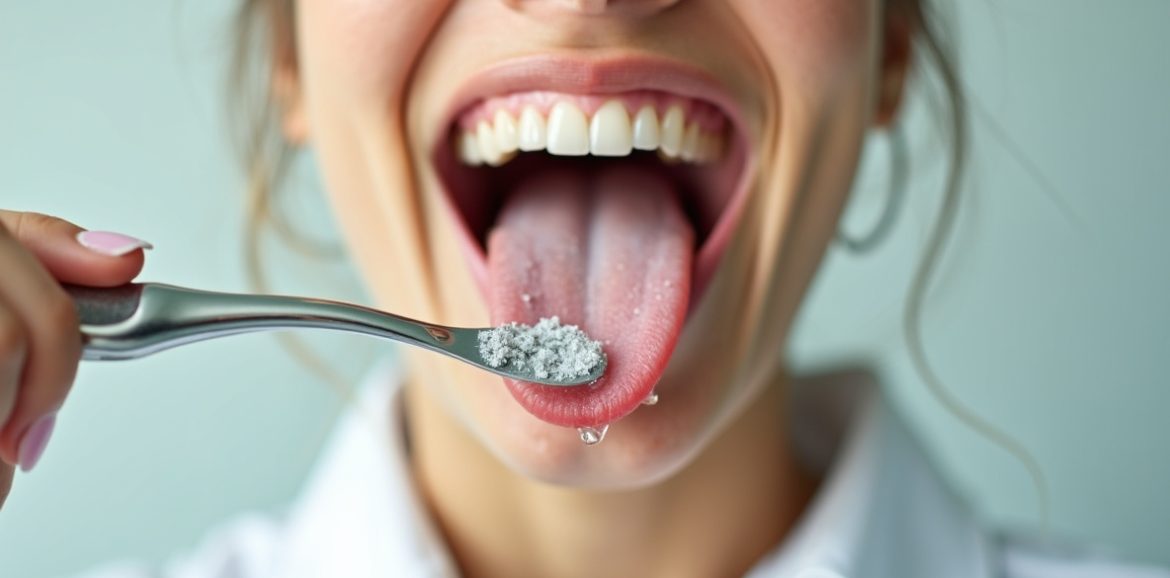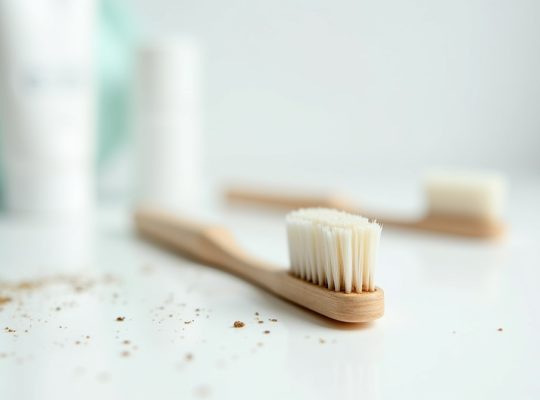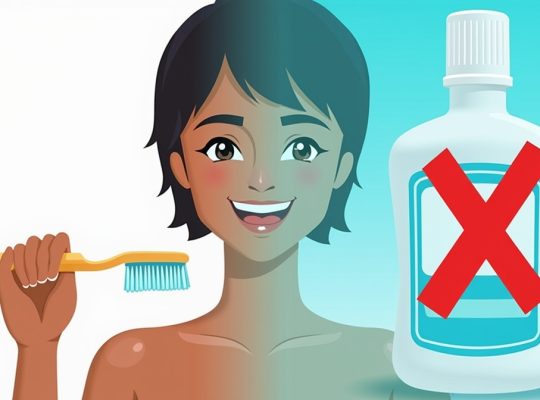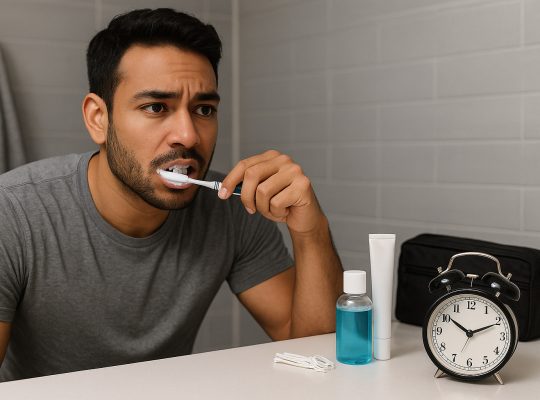Many people overlook their tongue when it comes to oral hygiene, but did you know that neglecting this small yet significant part of your mouth can affect your overall oral health? Your tongue plays a huge role in helping you maintain fresh breath and a clean mouth. Just like brushing your teeth, cleaning your tongue is an essential step in keeping your mouth in top condition.
While you may already be aware of brushing and flossing your teeth, the tongue can harbor bacteria, food particles, and dead cells. These build up on your tongue’s surface and lead to bad breath, plaque, and even tooth decay. So, how exactly do you clean your tongue to make sure it’s properly taken care of? Let’s explore some easy, effective techniques to clean your tongue for better oral hygiene.
Why Cleaning Your Tongue Matters
Your tongue is home to thousands of tiny bumps called papillae, which trap bacteria, food particles, and dead cells. Over time, these accumulate on your tongue’s surface, forming a sticky layer called biofilm. If this biofilm isn’t removed regularly, it can lead to a range of issues, from bad breath to more serious dental problems like cavities and gum disease.
In addition to maintaining fresh breath, cleaning your tongue can also help prevent the growth of harmful bacteria that can negatively affect your overall health. Cleaning your tongue regularly supports better digestion, since your tongue plays a part in the first step of food breakdown.
Let’s break down the most effective ways to clean your tongue and keep your mouth in tip-top shape.
Best Ways to Clean Your Tongue
When it comes to tongue cleaning, there are several methods to consider. Whether you prefer tools or natural techniques, these options can help you keep your tongue fresh and clean.
Using a Tongue Scraper
A tongue scraper is one of the most effective tools for cleaning your tongue. It’s specifically designed to remove the buildup of bacteria, food particles, and dead cells from the surface of your tongue. They come in various materials, including stainless steel, plastic, and copper.
To use a tongue scraper:
- Place the scraper at the back of your tongue.
- Gently pull it forward toward the tip of your tongue.
- Repeat this process a few times, rinsing the scraper with water after each pass.
- Rinse your mouth with water or mouthwash to remove any leftover residue.
Tongue scrapers are easy to use and can be found at most pharmacies or online. It’s recommended to use a tongue scraper every time you brush your teeth to maintain a clean tongue.
Brushing Your Tongue
If you don’t have a tongue scraper on hand, using your regular toothbrush can do the job too. Many toothbrushes even have a built-in tongue cleaner on the back of the head. If yours doesn’t, you can still brush your tongue with the bristles.
To brush your tongue effectively:
- Apply a small amount of toothpaste to your toothbrush.
- Stick out your tongue and gently brush it in circular motions, starting from the back and working your way to the front.
- Focus on brushing the top surface, but don’t forget the sides of your tongue as well.
- After brushing, rinse your mouth thoroughly with water or mouthwash.
Brushing your tongue with your toothbrush is a quick and simple method, and it’s usually enough for most people.
Using Mouthwash
After scraping or brushing your tongue, mouthwash can be a great way to kill any remaining bacteria and leave your mouth feeling fresh. Choose an alcohol-free mouthwash to avoid drying out your mouth.
To use mouthwash effectively:
- Pour a small amount of mouthwash into a cup.
- Swish it around in your mouth for 30 seconds to one minute.
- Be sure to swish it through your tongue as well as your teeth and gums.
- Spit it out and rinse your mouth with water if needed.
Mouthwash is a good addition to your routine, but it shouldn’t replace physical tongue cleaning.
Hydration and Its Role in Tongue Health
Drinking water is another key factor in maintaining a clean tongue. Staying hydrated helps wash away bacteria and food particles that can accumulate on the tongue. Plus, water keeps your saliva flowing, which naturally helps cleanse your mouth.
To ensure proper hydration:
- Drink plenty of water throughout the day.
- Avoid sugary or acidic drinks that can contribute to plaque buildup on your tongue.
- Try sipping water regularly, especially after eating or drinking something sticky.
Hydration is a simple yet effective way to maintain a clean tongue, and it supports overall oral health.
Common Mistakes to Avoid When Cleaning Your Tongue
While cleaning your tongue may seem simple, there are a few common mistakes that can make the process less effective or even cause harm.
Being Too Aggressive
It’s important to clean your tongue gently. Scraping too hard or brushing too aggressively can cause irritation or even damage the sensitive tissue of your tongue. Use light pressure when scraping or brushing, and stop if you feel any discomfort.
Not Cleaning the Whole Tongue
Many people focus on cleaning just the tip of their tongue, but the back and sides of your tongue are just as important. Make sure to clean the entire surface of your tongue to remove all buildup.
Skipping Regular Cleaning
Cleaning your tongue should be a regular part of your oral hygiene routine. Skipping it once in a while can lead to the buildup of bacteria and plaque, causing bad breath and other oral health issues. Clean your tongue daily for the best results.
Using Harsh Chemicals
Avoid using harsh chemicals or abrasive products on your tongue, as they can damage the delicate tissue. Stick to gentle cleaning methods like a tongue scraper, toothbrush, or mouthwash that is specifically designed for oral care.
How to Make Tongue Cleaning a Daily Habit
Incorporating tongue cleaning into your routine doesn’t have to be difficult. Here are a few tips to make it a regular habit:
- Do it while brushing: Add tongue cleaning to your morning and evening routine. After brushing your teeth, take a few extra seconds to clean your tongue.
- Set reminders: If you often forget, set a daily reminder on your phone or leave a note in your bathroom as a prompt.
- Start simple: Begin with a toothbrush and gradually add a tongue scraper or mouthwash as you get into the habit.
By making tongue cleaning a daily ritual, you’ll help keep your mouth fresh and reduce the risk of bad breath and other oral health issues.
Final Thoughts
A clean tongue is just as important as clean teeth when it comes to maintaining overall oral health. Regular tongue cleaning helps remove harmful bacteria, food particles, and dead cells that can lead to bad breath and other oral problems. Whether you choose to use a tongue scraper, a toothbrush, or mouthwash, the key is consistency. Don’t forget to hydrate and maintain a regular tongue cleaning routine to keep your mouth fresh and healthy.
By adding this simple yet powerful step to your oral hygiene habits, you’ll enjoy better breath, healthier teeth, and a cleaner, fresher mouth overall. So, take the time to clean your tongue every day, and your mouth will thank you.






